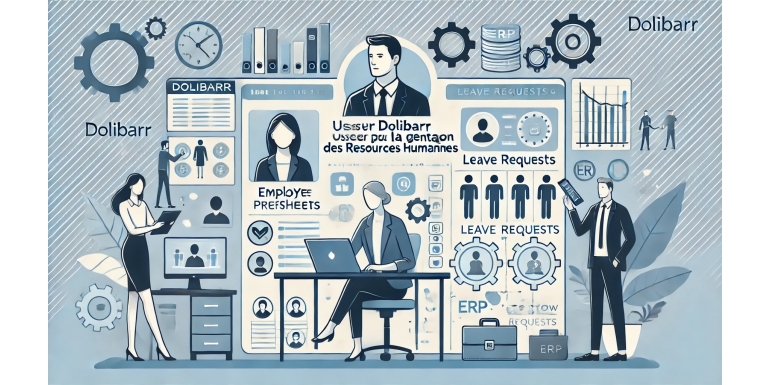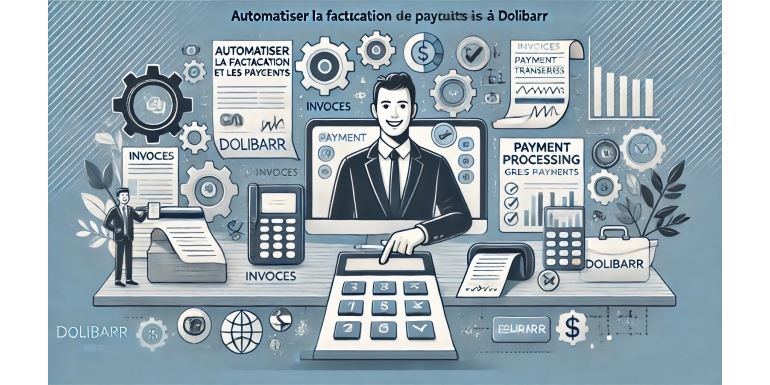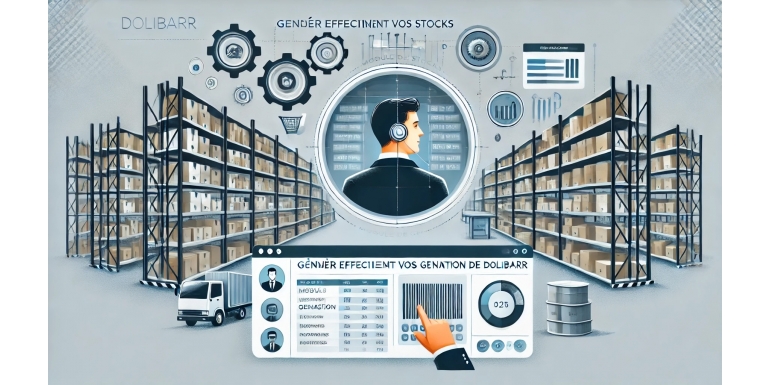Creating Custom Reports for Better Decision-Making with Dolibarr ERP & CRM
Dolibarr 0 Comments views (5736)
In today’s data-driven business environment, making informed decisions is crucial for organizational success. Whether you are managing a small enterprise or a rapidly growing company, access to reliable, real-time information significantly impacts your operational efficiency, financial health, and strategic planning.
While Dolibarr ERP & CRM already provides a comprehensive set of standard reports across its modules, businesses often need cust
Using Dolibarr for Human Resources Management: A Comprehensive Guide
Dolibarr 0 Comments views (6419)
Human Resources (HR) management is a core pillar of any organization. Whether a company employs 5 people or 5000, managing personnel effectively is critical to ensuring employee satisfaction, regulatory compliance, organizational efficiency, and ultimately business success.
Many businesses, especially small and medium-sized enterprises (SMEs) and startups, struggle to find an HR management solution that is both affordable and comprehensive. Wh

In today’s fast-paced business environment, effective project management is more critical than ever.
Whether you're managing client projects, internal initiatives, product development, or service delivery, being able to plan, track, and control every aspect of a project efficiently is essential to success.
However, many businesses — especially small to medium-sized enterprises (SMEs) and freelancers — find it challenging to implement complex

In today’s dynamic business environment, efficiency and automation are not just advantages — they are essential for survival.
For businesses of all sizes, especially SMEs and freelancers, managing invoicing and payment collections manually can be time-consuming, error-prone, and inefficient.
Automation tools offer the ability to streamline these processes, improve cash flow, reduce administrative burden, and enhance client satisfaction.

In today’s highly competitive business environment, inventory management has evolved into a critical function for companies of all sizes.
Whether you are running a small retail shop, a manufacturing facility, a distribution business, or an e-commerce operation, your ability to manage stock effectively directly impacts your profitability, customer satisfaction, and operational efficiency.
The Advantages of Dolibarr for Self-Employed Professionals and Freelancers
Dolibarr 0 Comments views (5484)
The rise of the gig economy, remote work, and entrepreneurship has significantly increased the number of freelancers and self-employed professionals across the world.
Today, individuals working independently — whether consultants, developers, designers, writers, or small business owners — need more than just skills and creativity to thrive.
They need tools that can help them manage their finances, projects, clients, and administrative tasks eff
